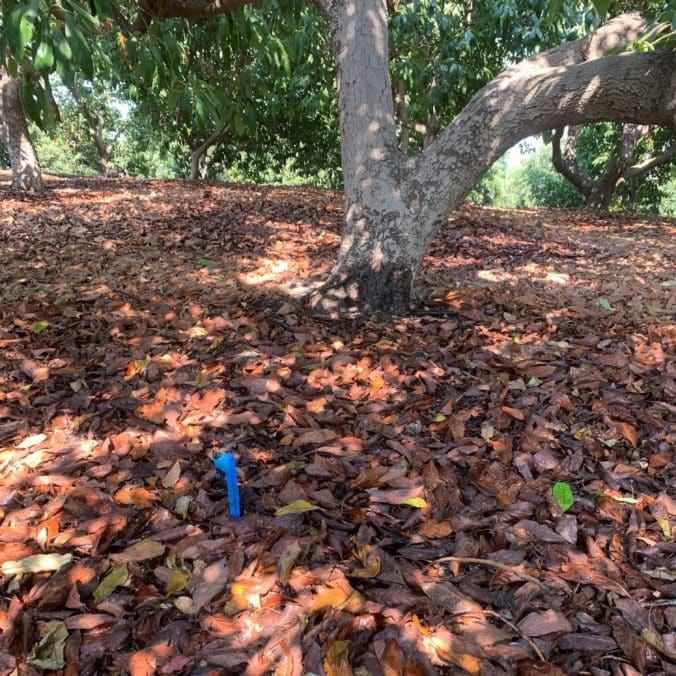Should I clean up all the fallen leaves in my yard?

Avocado leaf litter
One of our recent Hotline questions was:
Should I clean up the dropped leaves in the yard now to make it “nice and clean” for the new year/season?
Answer:
I couldn’t help but remember my Grandmother urging me always to maintain cleanliness…”If you don’t wash your ears every day, watermelons will grow out of them!” she used to say. Her motivation was clear and benevolent, but while she kept a tidy rose garden, was she right when it comes to the garden overall?
The answer, as usual, is “It depends”. All living plants throw off detritus: old leaves no longer viable, last year’s growth in some cases, or for annual plants, the entire plant as it withers when yearend approaches. Driven by primarily day length, annual plants know when their “time is up”, especially if they have been able to set seed in some form. They should be removed from the garden along with their earlier leaf litter. Tomatoes and other Solanaceae are prime examples. It’s possible to get another season out of a rare coastal tomato (think very mild climate) but the risk of nematode incursion may go up. You don’t want to risk a pest which is more long-lived in the soil than the plant it first infected. So, yes, clean up old and failing plants.
Many perennials also benefit from a fall cleanup. Roses will be less challenged by rust and mildew if their leaf litter is cleaned away when you do their annual winter pruning. Even less ornamental plants, like some of our large native bunch grasses (I’m thinking here of Muhlenbergia rigens, Deer Grass) will benefit from a once-yearly prune (to 6 inches!). Their new late winter growth will be fresh and vibrant. California native tribes reported using fire to clean out the overgrown Muhlies en masse, resulting in better growth of inflorescenses for basketweaving** As an added benefit for our modern urban landscapes, removal of old dead growth lowers fire danger by removing ready fuel from the plantings. In fact, the cleanup Grandma had in mind can help lower fire risk throughout your property.
So why not simply clean out everything? Some of our fruit trees won’t do as well, for instance. The avocado, has a network of small feeder roots close to the surface. Maintaining the leaf litter will give those little feeder roots a better protected, moist environment (don’t forget, we DO live in a desert!). Plus, the tree will be more likely to claw back some s nutrients from its own sloughed leaves. And there will be a lower chance of root damage from a rake regularly and zealously scraped over the surface. Citrus are similar. Let their leaf litter be. They will recycle some of their own nutrients. Citrus leaf fall is low-fuel leaf litter anyway, so save yourself time and don’t clean it up.
Our food crops benefit from custom care for good crop yield. Generally, they are imported exotics who developed initially in a different climate. Their own detritus can be either beneficial (avocadoes) or bad (tomatoes). So, Grandma was only partially correct. Yes, it’s good to clean up old dead growth and leaf litter, and perhaps even add a fresh (clean) layer of organic mulch to slowly feed the soil. You’ll also help stifle weed germination, slow water evaporation, and make the landscape look fresh and renewed in the process. Just be sure you pay attention to the particular needs of your crop plants so they can reward you spring, summer and fall with ample crop yield.
** Page 145, “Tending the Wild, Native American Knowledge and the Management of California’s Natural Resources” by M. Kat Anderson, University of California Press, 2005. Editor’s Note: It’s a good read
Bruecks, a UCCE Master Gardener of San Diego County, has been a Master Gardener since 2005. She is a sustainable landscape expert and an edible landscape trainer, and spends her time, when not in the garden, speaking to garden groups and staffing the San Diego Master Gardeners hotline. She is a mathematician by training and is convinced that facts and data can lead to answers for even tough questions.

